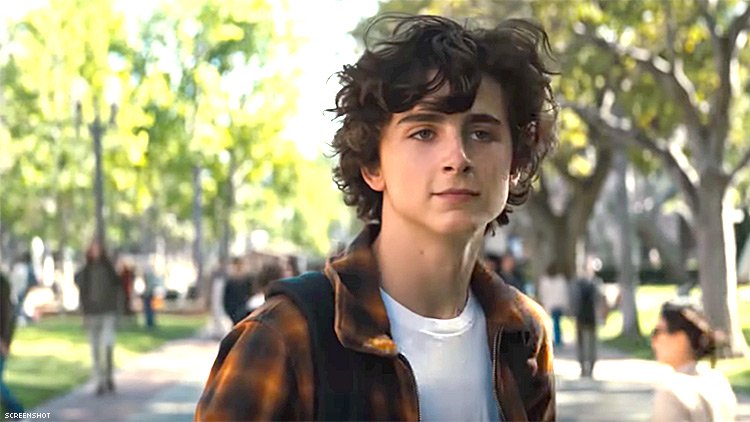Drug addiction is a serious problem. One that affects youth on a greater average, and sadly doesn’t get all of the attention it deserves. Beautiful Boy, the English-language debut of Belgian director Felix Van Groeningen, and an adaptation of two separate memoirs, attempts to tackle this issue with this biographical drama about former addict Nic Sheff, with Timothee Chalamet as the addict, and Steve Carell as his father David. While Van Groeningen takes full advantage of his leading actors, the rest of the film is marred by poor editing decisions that fail to deliver on the emotional impact a story like this should deliver on.
Timothee Chalamet, fresh off his boffo 2017 run with Oscar nominees like Lady Bird and Call Me By Your Name, the latter of which landed him his first Oscar nomination, is by far the most successful element in the film. His depiction as a druggie is both believable and horrifying. Seeing him go through so many emotions such as sadness, anger, frustration and desperation is heart-wrenching, as Chalamet shows why he’s so talented and has such a promising future. Steve Carell also delivers with an understated and emotionally grounded performance as his father, while Maura Tierney as Carell’s wife and Amy Ryan as Carell’s ex also have solid emotional performances. Although in spite of the other good performances, the film really loses its momentum whenever Chalamet is off screen.
In many respects, through Carell and especially Chalamet, a lot of the film’s shortcomings, particularly some of the narrative decisions, are far less of a hindrance. The film’s structure goes for a non-linear fashion, along with a handful of flashbacks which sees David interacting with his son at younger ages. The non-linear screenplay leads to the film being confusing to follow, not helped by the editing failing to give any indication on the sequential order of events. It certainly doesn’t help when it comes to the emotional impact the film tries to give across, as the viewer fails to grasp and feel what these characters are going through thanks to this storytelling. Van Groeningen really wants to make the viewers emotionally invested, and the actors try their best, and while it certainly can tackle a few heavy emotions, it doesn’t go all the way.
The flashbacks to the younger Nic Sheff also fail to bring anything new to the movie. They arguably do strengthen David’s character somewhat as a loving father figure, but they aren’t essential, as the present-day sequences showcase David’s affectionate side, and they never reveal anything about Nic’s character. If these flashbacks were removed, nothing of value would be lost. If anything, it would have enhanced the film.
It’s kind of conflicting to be critical over Beautiful Boy, because its intentions are certainly good and Chalamet delivers an incredible performance. But due to the screenplay and the editing, it only ends up as a passable affair, one that suffers due to unnecessary sequences, and a storytelling method that doesn’t work for a movie like this, or at the very least isn’t executed properly. It may start a conversation, it may have great performances and it may on the whole be a perfectly fine drama, but there’s an aching feeling the film could have been something truly extraordinary.
